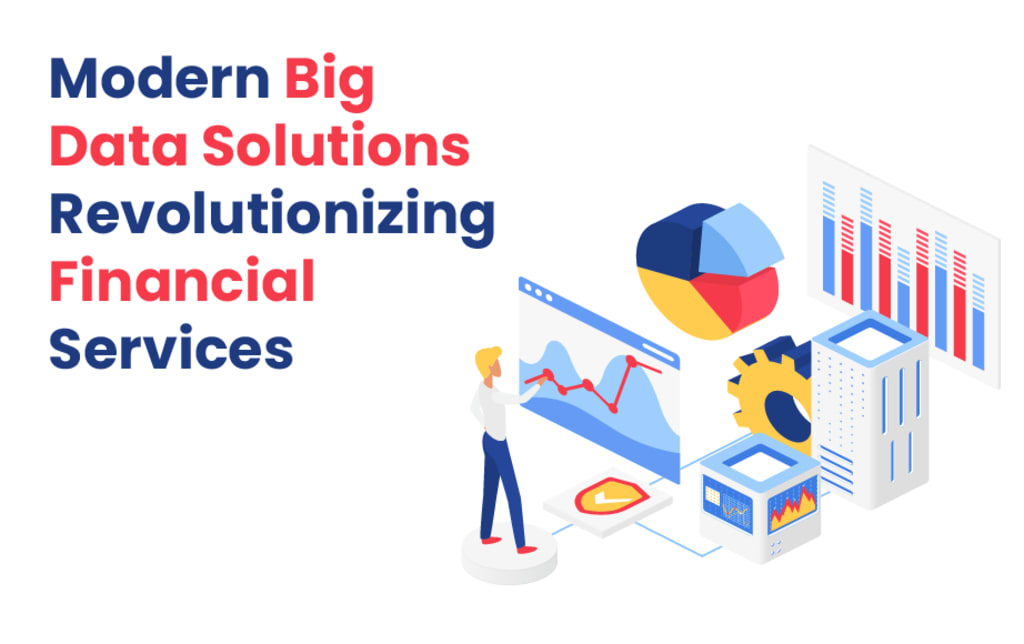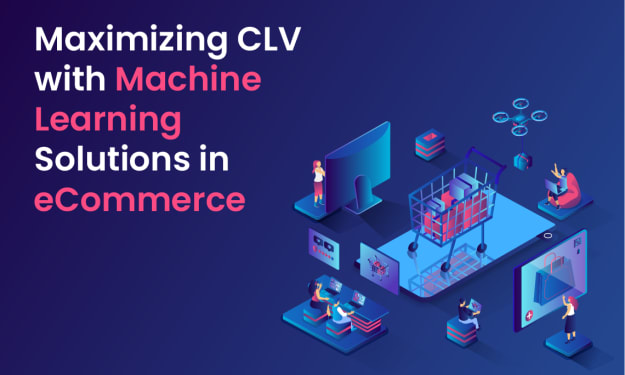Modern Big Data Solutions Revolutionizing Financial
Integrating big data analytics in financial services can optimize its functioning and increase transparency. check out this article to learn its benefits.

Introduction
The financial services industry has always been a data-driven one. However, traditional data sources are becoming insufficient as the market continues to evolve. Today, financial institutions are facing a multitude of issues, including low customer satisfaction, high costs and rising competition. The industry is also dealing with increasing regulation and compliance requirements. By leveraging new technologies like big data analytics and AI, financial services companies can reduce costs, improve customer experience and increase revenue.
This article explores how financial services firms can use advanced analytics to achieve business goals by incorporating modern technology-driven solutions.
Big Data Solutions
It is an essential component of financial services and can be used to improve customer experience, reduce risk and increase efficiency. It can also help in reducing costs, improving revenue and creating new products and services.
Big data refers to the massive amounts of digital information that businesses collect about their customers, employees and vendors. This includes everything from social media posts to shopping histories to call center transcripts. It's an incredibly valuable resource for companies looking for ways to make smarter decisions by analyzing past performance data in order to predict future outcomes based on similar scenarios or circumstances that have occurred previously (can be understood as "pattern recognition").
Fintech Solutions
This modern technology offers a number of benefits to the financial services industry. These include:
•Improved Customer Service: With the help of data analytics, it can help financial services companies to provide better customer service. This is especially true for banks that have a large number of customers with similar profiles and are looking for ways to differentiate themselves from their competitors.
•Reduced Costs: It also offers an opportunity to reduce costs by streamlining back-office operations and automating manual processes. For example, many banks use call center transcripts to determine which products or services their customers need based on the issues they raise during conversations with representatives.
•Better Customer Experience: Banks can leverage these services to provide a better customer experience by making it easier for customers to use their banking services, such as opening accounts or making payments.
•Improved Operational Efficiency: It can help banks streamline operations and reduce costs by automating manual processes and reducing errors associated with human error.
•Enhanced Fraud Detection Capabilities: Banks can detect fraudulent activity more quickly by using Machine Learning algorithms that analyze customer data before red flags arise.
•Automated Services: Fintech solutions often allow banks to automate manual processes and reduce human error through Artificial Intelligence (AI) technology. Banks are also able to save money by using fintech products in place of traditional ones, which can sometimes be more expensive than they need to be because they're designed for maximum profit rather than efficiency.
For example, if you're using an ATM machine at night when there aren't many people around then maybe there's no need for an employee standing nearby waiting for someone who needs help with their card or PIN number--you could instead have them spend time at another location where there would be more foot traffic later on that day/evening/night!"
An Increasing Need for Data-Driven Decision-Making in Financial Services
There is a need for the financial sector to undergo digital changes and incorporate data-driven decision making. The industry has already seen the benefits of big data solutions and is leveraging them to improve customer experience, increase revenue, reduce costs and drive innovation. These solutions are essential for companies that want to stay competitive in today's marketplace. However, it's important to note that there are both challenges and opportunities associated with Big Data.
For example, if your company is looking to implement a solution that collects data from multiple sources, such as customer records and credit bureau information,
Using Big Data can be considered beneficial and can help financial services companies:
•Improve customer experience by offering personalized products based on individual needs or preferences;
•Increase revenue through better cross-selling/upselling opportunities;
•Reduce operational costs by automating manual tasks such as billing & reconciliation processes or claims management;
•Drive innovation with new products & services based on real-time analytics
The benefits of big data solutions are numerous but require expertise to be able to leverage it entirely. This is why hiring or outsourcing experts is an ideal choice for efficient transformation and integration.
Conclusion
Overall, the increasing demand for data-driven decision making in financial services is a positive trend. It will not only benefit consumers by bringing more transparency and efficiency to their financial lives but also help banks and other institutions better manage their risk exposure. However, it is essential to note that the proliferation of data is not a universal cure.
Data can only be helpful if it is properly analyzed and interpreted, which requires information technology capabilities as well as human expertise in finance, risk management and other disciplines.
About the Creator
Dipen Patel
Dipen is an expert when it comes to Software Development & Programming in Full-stack and open-source environment. He has been working as the Chief Technology Officer at Quixom, providing a wide range of IT solutions.






Comments
There are no comments for this story
Be the first to respond and start the conversation.